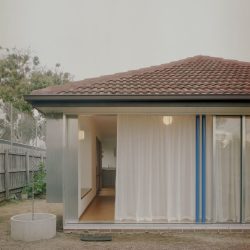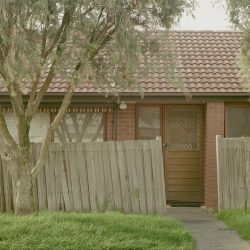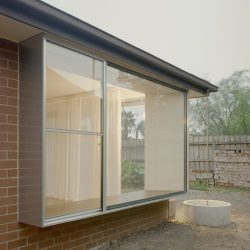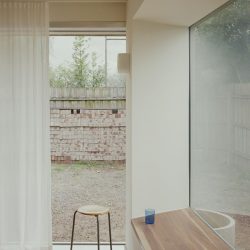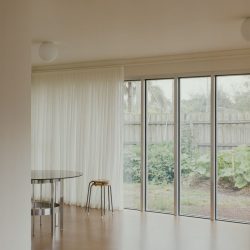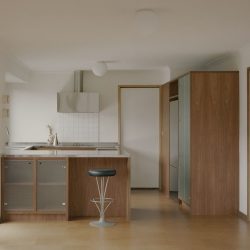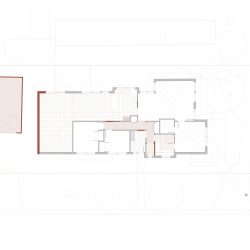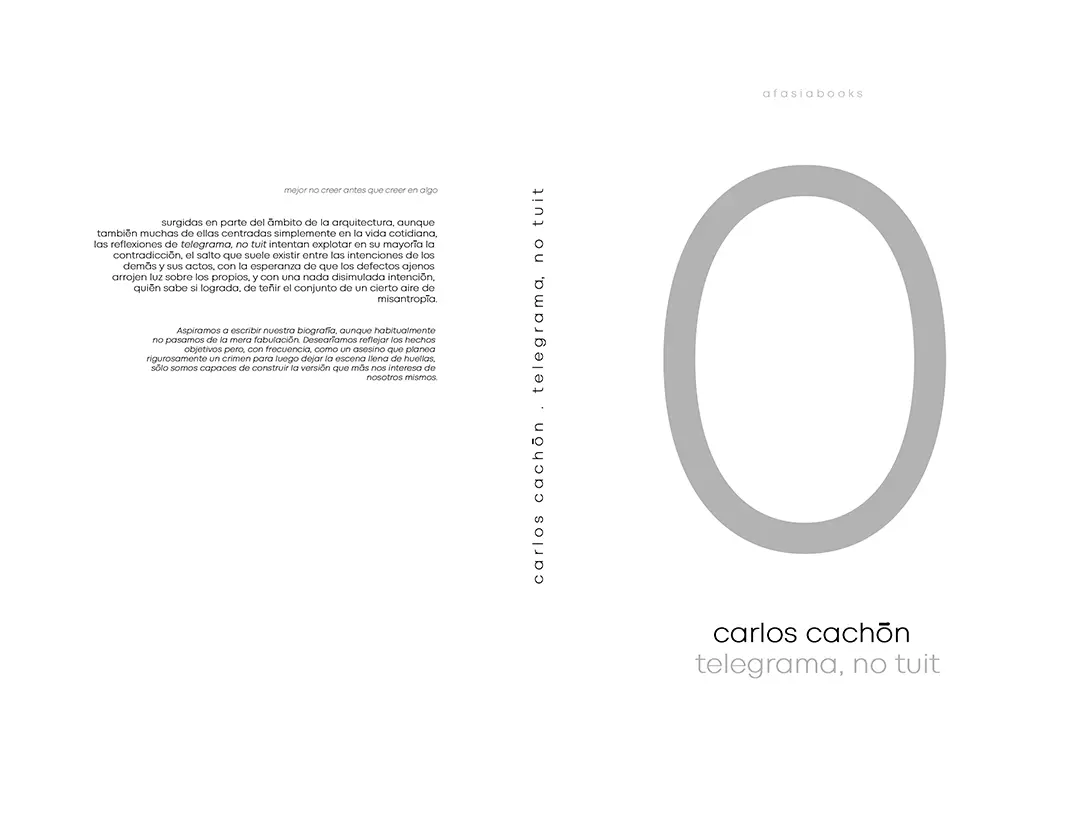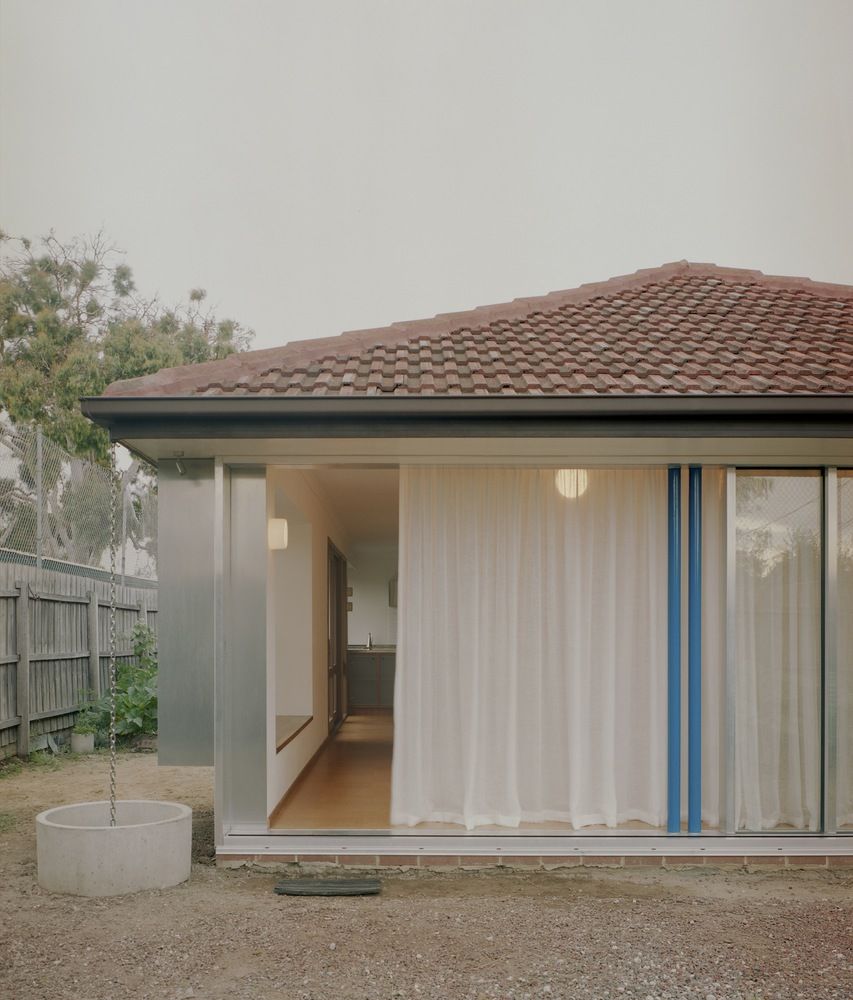
SSdH . photos: © Pier Carthew . + archdaily
Heritage Value -Although the house that became ‘Stewart’ is atypical to the prescribed requirements that dictate heritage value and sits outside a designated heritage overlay, the design response embraces the principles of the Burra Charter. ‘Stewart’ celebrates the 1970s brown, brick-veneer, Brunswick house – a quintessential element of Melbourne’s built character that defines a period within Australia’s recent history but is yet to be recognised as having heritage value. The employed strategy focuses on both new elements and light touch design interventions to provide significant impact. Internally, an intentional blending of new and existing conditions leaves viewers questioning where interventions begin and end.
Economic/Environment
‘Stewart’ not only highlights the value of preserving this housing type, it also considers the economic and environmental impacts of architecture. Opting for minimal intervention or, doing nothing at all, is proven to be a valid and effective architectural response.
Influence/Exemplar
Overcoming budget constraints through the employed design strategy extends impact beyond the immediate project. It sets an example for the development of our suburbs without compromising their unique character or ongoing contribution to the city. Recording projects of this scale and type through platforms such as awards submissions and publications is critical. The documentation communicates the value of thoughtful architectural intervention and its potential impact.
Tectonic Elements
Celebrating tectonic and functional elements through color, material, and form, ‘Stewart’ provides a cost-effective precedent by resisting the trend of increasing size and adding excess material to achieve an architectural outcome. Architectural elements typically concealed take center stage, as evidenced by two structural columns supporting the new northern opening. Painted in a vibrant glossy blue, the columns become a key aspect of the architectural response, a signal of new connections between the interior and future landscaped areas. Material plays a crucial role. Standard window sections are reconfigured and elevated to architectural features through a shift in scale and the selection of mill-finished aluminum. The aluminum reflects light throughout the interior, will soften and patina over time, and celebrates the utilitarian as a cost-effective solution.
Design Specific Responses
Under a propped roof, a glazing suite allows northern access to a space previously disconnected from light and landscape. An east-facing daybed replaces a sliding door. Protected by existing eaves, the new volume provides increased access to morning light and space. A new kitchen reflects the existing character and charm. Maintaining an existing blind thoughtfully integrates new with old. A single bathroom becomes two, practicable for a family of four. Material selection and visual connection to context leave viewers questioning where interventions begin and where they end.
Incompleteness
‘Stewart’ is an ongoing project with multiple stages accurately reflecting the messy reality of economical architecture. Occupation informs future stages – new habits impact landscape design, budget adjustments impact privacy, and an ongoing drive toward sustainable living impacts building services and improvements. Removed from the traditional handover, we are well-positioned to learn from the project as we operate within our previous decisions and a new ‘existing condition’.
_

